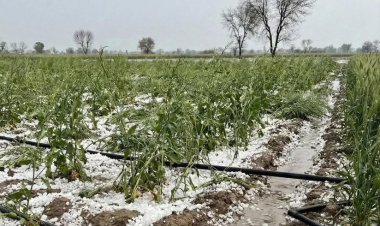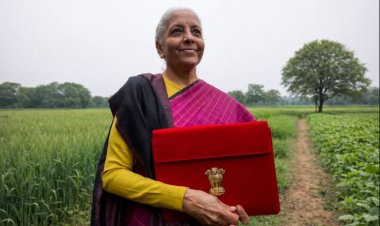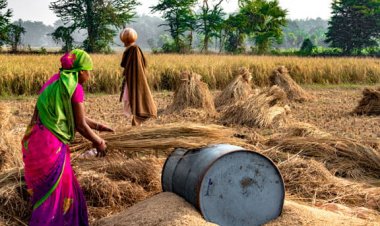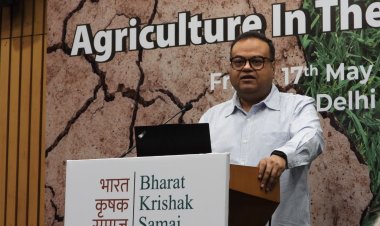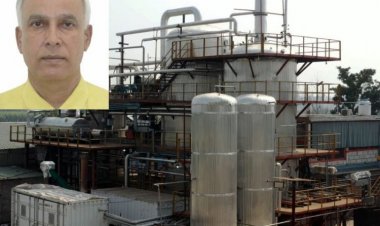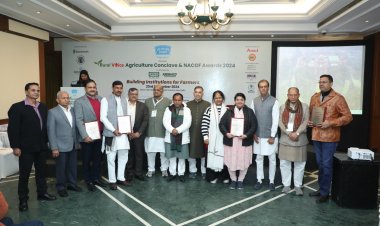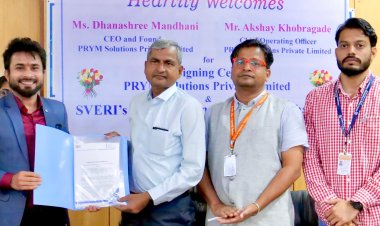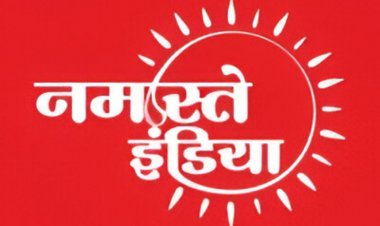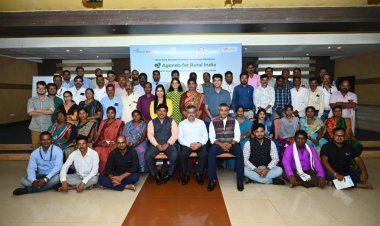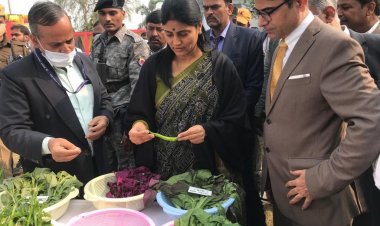Boost Rice Yields with Innovation and Better Management, Says Dr. Paroda
Addressing key challenges, Dr. Paroda highlighted that many farmers in Punjab have abandoned hybrid rice cultivation due to poor procurement by millers, resulting from low head rice recovery. He urged breeders to focus research on improving head rice yield to restore farmer confidence and drive higher productivity.
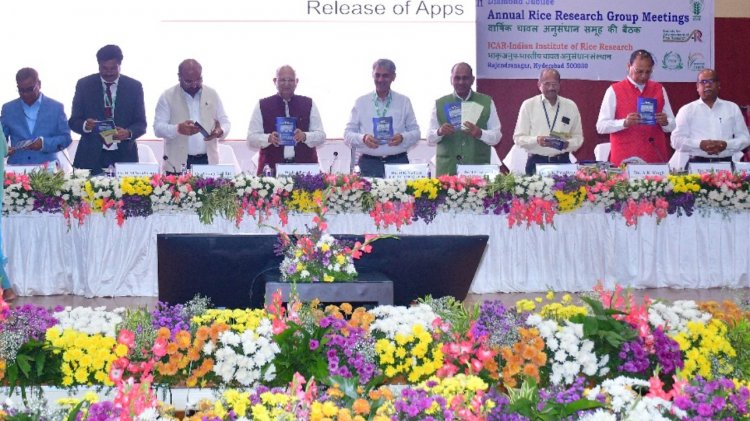
Agricultural scientist and former Director General of the Indian Council of Agricultural Research (ICAR), Dr. R.S. Paroda, has raised a pressing concern for India’s agricultural sector, pointing out that while China achieves an average rice yield of 6 tonnes per hectare, India lags behind at just 3.5 tonnes. Speaking at the Diamond Jubilee event of the Annual Group Meeting of Rice Researchers under the All India Coordinated Research Project on Rice (AICRPR) — organised by the ICAR-Indian Institute of Rice Research (ICAR-IIRR), Hyderabad, from April 26 to 28, 2025 — Dr. Paroda emphasised the urgent need to bridge this yield gap through the development of improved rice varieties and enhanced management practices.
Addressing key challenges, Dr. Paroda highlighted that many farmers in Punjab have abandoned hybrid rice cultivation due to poor procurement by millers, resulting from low head rice recovery. He urged breeders to focus research on improving head rice yield to restore farmer confidence and drive higher productivity.
Dr. M.L. Jat, Secretary, DARE, and Director General, ICAR, opined that changing consumption patterns, climate change, and environmental degradation must be taken very seriously. He stressed that the development of varieties, technology, market policy, and socio-economic factors must be thoroughly researched. Dr. Jat also emphasised that farm scientists should focus on region-specific agri-food systems in India. He noted that the area under rice cultivation must be reduced by 5 million hectares while simultaneously increasing production by 10 million tonnes. Nitrogen use efficiency, water use efficiency, methanogenesis, and phosphorus use efficiency should be key areas of focus.
AICRPR is the largest network dedicated to a single crop — rice — comprising more than 500 researchers across all rice-growing states in the country. The Diamond Jubilee Annual Group Meeting of Rice Researchers was convened to deliberate on the progress of rice research carried out in 2024, to discuss the latest developments, and to frame the technical programme for 2025.
Dr. R.M. Sundaram, Director, ICAR-IIRR, presented the progress report for 2024 and outlined the future plan of work related to rice research for 2025. He also revealed that ICAR-IIRR is the first institute in India to develop genome-edited rice, using the Samba Mahsuri background, with a 19% yield advantage to boost production, productivity, and farmers' profits.
Dr. Aldas Janaiah, Vice-Chancellor of PJTSAU, mentioned that organised rice research in Telangana began in 1928 under Nizam rule. The construction of the Himayat Sagar Dam helped farmers adopt rice cultivation, and today, Telangana has become a surplus rice-producing state in the country.
Dr. D.K. Yadava, Deputy Director General (Crop Sciences), ICAR, stated that incentivisation in rice research and genome editing represent new frontiers for rice research in India. Since the enactment of the Seed Act in 1966, India has released 1,500 rice varieties. He noted that 20% of agricultural exports are from rice, generating Rs. 48,000 crore in foreign exchange. Dr. Yadava stressed the need to expand the area under hybrid rice and mentioned that herbicide-tolerant rice varieties are a boon for Basmati rice farmers in the Indo-Gangetic Plains and for direct-seeded rice cultivation in north-western India.
The AICRPR workshop was inaugurated by Dr. M.L. Jat, Secretary, DARE, and DG-ICAR, on April 27, 2025, at 9:30 AM. The three-day programme was coordinated by Dr. R.M. Sundaram, Director, ICAR-IIRR, Hyderabad. Distinguished scientists who attended the inaugural function included Dr. D.K. Yadava, Deputy Director General (Crop Sciences), ICAR, New Delhi; Dr. Aldas Janaiah, Vice-Chancellor, PJTSAU, Hyderabad; Dr. R. Sarada Jayalakshmi Devi, Vice-Chancellor, ANGRAU, Guntur; Dr. A.K. Singh, Emeritus Scientist, ICAR-IARI, New Delhi; Dr. S.K. Pradhan, Assistant Director General (FFC), ICAR, New Delhi; and Shri Ajay Bhalotia, Chairman, Fortune Rice Ltd. The event also witnessed participation from delegates representing ICAR-National Rice Research Institute (ICAR-NRRI), Cuttack; ICAR-Indian Agricultural Research Institute (ICAR-IARI), New Delhi; AICRPR network partners; dignitaries from the International Rice Research Institute (IRRI), Philippines; and executives from private seed companies across India.



 Join the RuralVoice whatsapp group
Join the RuralVoice whatsapp group

















